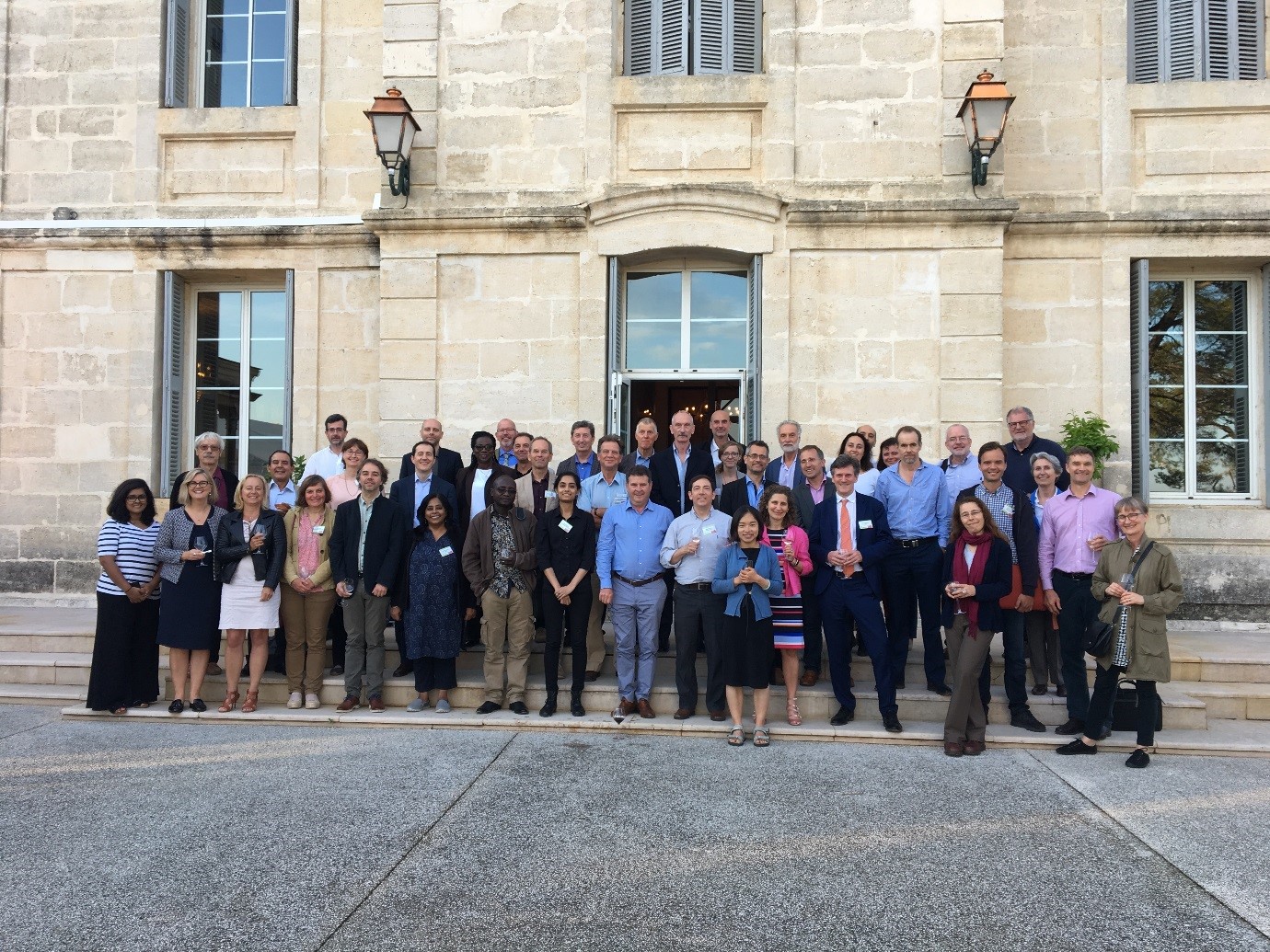
The Food4Foresight initiative is intended to bring together foresight practitioners from around the world, in a global drive to address key issues around the future of food and agriculture. Foresight is a key tool that governments, private sector and civil society can jointly use to better understand future risks and opportunities in food systems, explore possible futures and to adapt.
GFAR has long supported greater cross-learning and integration of diverse foresight studies. In partnership with other key actors, the Foresight4Food Initiative is now being established as a collective action to support enhanced foresight and scenario analysis for global food systems. Foresight4Food aims to provide a mechanism for better analysis and synthesis of key trends and possible futures in global food systems and to support more informed and strategic dialogue between the private sector, government, science and civil society. Development of the Initiative was encouraged by international organisations, leading research institutes, development agencies and business representatives in a scoping meeting in Oxford in March 2017. Around 50 experts attended the workshop, either in person or via internet connection.
Resources have been secured to help mobilise the initiative and consult more extensively with a full range of actors, platforms and networks who have an interest in food systems foresight. Start-up funding for the Initiative is being provided through The Global Forum for Agricultural Research and Innovation (GFAR), Australian Centre for International Agricultural Research (ACIAR), French Agricultural Research Centre for International Development (CIRAD)/University of Montpellier, and Oxford University. The initiative has support from key global institutions including FAO and CGIAR. Development of the Initiative is being guided by a steering group of representatives from the Oxford meeting. An initial support unit for the initiative is being hosted by the Food Systems Group of the Environmental Change Institute of Oxford University.
Proceedings
The meeting in March provided an overview and review of existing foresight activities relevant to the initiative and enabled active round table discussions covering the scope and actions expected of the initiative. It was agreed in the meeting that Foresight4Food should support, and not duplicate, the work of existing institutions and platforms dealing with food and agriculture issues by coordinated efforts providing foresight services and analysis to serve multiple purposes and groups.
A wide range of challenges were identified for which better foresight is required, including in particular: the need to move from local to global scales and across social, environmental and economic dimensions, the need to recognize the role and influence of politics and power, how foresight can help understanding of the rules and boundaries involved in agri-food systems, how solutions required are not always technological, inequality being the main barrier to food security. Foresight was recognized as a valuable way to provide information so that people can design their own futures.
2018 World Food Prize winner David Nabarro highlighted that, from solvable problems to systems, new challenges are multifactorial and require holistic approaches. Foresight provides a narrative, with collective engagement of people, nudging systems to a better place and are directly relevant to achieving the SDGs, the best plan for the future we have. GFAR Executive Secretary Mark Holderness gave a presentation on the foresight work mobilized to date through GFAR, and on recent actions that include the development, with FARA, of an African Foresight Academy – a platform to bring together foresight practitioners and thinkers involved in the agricultural development and innovations space in Africa. He emphasized that foresight needs to be a key pillar of change in our agri-food systems, and associated innovation systems, around the world as our systems are fragmented, under-resourced, and need collective action and commitment to bring change.
Roundtable discussion sessions highlighted the diversity of approaches in the field, the richness of the conceptual framework being used for the initiative and the need for recognition of the needs of the end-users including via participatory involvement of farmers in synthesis, & the strength brought by actually recognizing the messiness of agri-food systems, rather than making simplistic assumptions based on linear thinking and processes.
Working groups then addressed various aspects of taking the foresight initiative forward - thinking about capacity building, resource portals, synthesis, etc. A particularly useful tool used in the meeting was that of ‘ritual dissent': with each discussion group sharing and getting feedback from the others to constructively challenge their thinking, allowing time for refining the outputs
Next steps
There was clearly a shared desire to input time, effort, and funding into coordinated future development of the initiative. In addition to continuing to help catalyse the Foresight4 Food initiative, GFAR is further developing the African Foresight Academy in direct partnership with FARA and working with those who were trained as foresight practitioners in a number of African countries. This should provide a valuable basis for communities to become more empowered and responsible in determining their own food futures, and in determining what innovations will be required to overcome challenges and get to the desired and preferred scenarios.
In addition, there are discussions around having an Africa edition of the Foresight4Food meeting that will bring together stakeholders connected to foresight for agri-food systems in Africa. The Africa meeting will be convened with the support of, and a collective action of, GFAR, FARA, the ACIAR and the University of Oxford. Hopefully this can happen later in the year or early next year when the discussions have been finalised.
